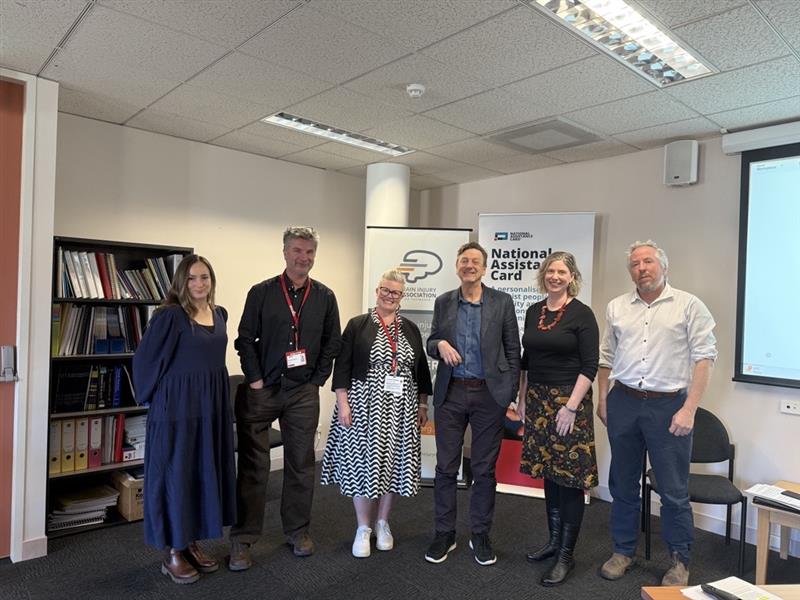Recap the webinar hosted as a part of Brain Injury Awareness Week in 2025, including hearing from Lex Bull and Paul Pritchard.
As part of National Brain Injury Awareness Week, the National Assistance Card partnered with the Brain Injury Association of Tasmania to host an online session titled “Understanding Brain Injury and the National Assistance Card.”
The event drew close to 100 participants from across Australia and featured presentations from Lex Bull, Rehabilitation Coordinator at the Royal Hobart Hospital; Rosie Mooney, Program Manager of the National Assistance Card; and Paul Pritchard, National Assistance Card Ambassador, professional mountaineer, and disability awareness educator.
The session focused on the theme of recovery after brain injury, explored in Lex’s presentation, and showed how the National Assistance Card can assist people by making it easier to communicate their needs with healthcare professionals and the wider community.
Watch The Webinar:
You can view the webinar in the player below:
Understanding Brain Injury
Lex Bull commenced the event with an in-depth discussion on the complexities of brain injury.
With 28 years of experience in neurosurgery and rehabilitation, he explained that every brain injury is different and needs its own individual approach. He outlined the two main types of brain injury – traumatic brain injury and acquired brain injury, their causes, and what are the common characteristics and impacts of brain injury.
Hearing from Paul Pritchard
Paul Pritchard also shared his personal journey living with a brain injury and epilepsy.
He recounted the challenges he faced, including memory and communication difficulties.
Paul emphasised the importance of the National Assistance Card in helping him navigate social situations and communicate his needs effectively. He shared a powerful example of how the card worked for him during a public speaking event, allowing him to express his needs without fear of misunderstanding.
"I was sharing my thoughts on making trails more accessible (about mountain tourism). But halfway through a question from the moderator, a noise from the audience, and a quick back-and-forth between panellists made it hard for me to process what I was being asked."
"Rather than push through and risk misunderstanding, I took out my National Assistance Card and, as I was sitting next to the moderator, I discreetly showed it to her."
"She looked at it for a minute and slowed her pace right down, and rephrased the question clearly."
"This small adjustment helped me to respond more thoughtfully and more confidently."
For Paul in particular, the Card is also about dignity and respect: “I believe it ensures I’m treated with dignity because all people require dignity, right? Not just non-disabled people.”
“I also use it as an educational tool in schools where I speak quite often. It helps smooth things over and opens doors for understanding.”
“I think the Card will continue to support my independence and safety. As more people and organisations become familiar with it, I’ll be able to navigate public spaces and unexpected situations more easily.”
“When I show the Card, I hope people respond with understanding, patience, and respect. I want them to take a moment to read the back of the Card and follow the guidance it gives.”
Paul's story resonated with many attendees. He expressed hope that as awareness of the National Assistance Card grows, it will help create a more inclusive community where people with brain injury feel safe and respected.
The Role of the National Assistance Card
Rosie Mooney, National Assistance Card Program Manager, provided an overview of the Card, explaining its purpose as a personalised communication tool for autistic people and people with brain injury.
Rosie highlighted the importance of community engagement in raising awareness about the National Assistance Card. She encouraged businesses and healthcare providers to participate in training sessions to better understand how to respond when someone presents the card.
The session finished with a question-and-answer time, giving participants the chance to ask questions and talk with the speakers. The discussions highlighted that understanding brain injury is an ongoing journey, and that the National Assistance Card can help people during recovery.




